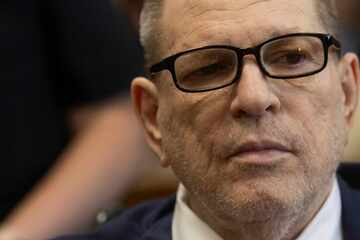International youth launch groundbreaking Pan-African Student Congress
New York, New York - The fourth session of the United Nations Permanent Forum on People of African Descent (PFPAD) saw youth take a historic step on Wednesday with the launch of the Pan-African Student Congress (PASC).

The fourth session of PFPAD – the largest platform for people of African descent within the UN – gathered diplomats, academics, activists, and advocates from around the world to discuss a range of issues, from reparations to the rights of women and girls, human rights and policymaking, AI and digital justice, and more.
A recurring theme in the conversations has been the urgent need for youth involvement in decision-making.
Since PFPAD's first session in 2022, members of the International Civil Society Working Group (ICSWG) Youth Subcommittee have been organizing for greater representation in the proceedings. Their first petition for increased youth engagement on the body garnered more than 150 signatures. A subsequent petition gained around 300 signatures.
The organizing reached a high point at PFPAD's third session in Geneva last year as young attendees issued their first-ever youth declaration, which called for the creation of PASC, among other demands.
At the UN in New York this week, the ICSWG Youth Subcommittee took the next step in announcing the establishment of the network, a groundbreaking mechanism which aims to connect students of African descent across the globe.
What is the Pan-African Student Congress?

PASC – the result of more than five years of youth organizing – is intended to serve multiple functions.
The network is designed to provide a platform that will empower African and Black student organizations and clubs to work together toward shared aims and present those in a coordinated, strategic way.
Students will be able to share resources and communicate about the policies they would like to see implemented on their campuses. PASC can then amplify those goals and recommendations on the local and the international stage.
"This multitiered dynamic allows us to engage student clubs as networks and nuclei of what we want to see happening, but also once policy is developed, to be able to be an aggregate within the congress to engage student councils," ICSWG Youth Subcommittee Co-Chair Miles Henderson explained.
In this effort, PASC will utilize technology to gauge student demands. An online portal will allow members to vote up or down proposed policy recommendations, which will provide insight into Black and African students' top priorities.
After years of campaigning for youth representation on PFPAD, a goal the ICSWG Youth Subcommittee still advocates, Henderson hailed PASC as the foundation for something even greater.
"Now we're saying okay, long term, let's add an entire youth mechanism that engages those bodies of students globally that are already self-organized, with an aggregation method allowing the students to tell you directly what their policy is – that's what's so exciting," Henderson said.
How to get involved with the Pan-African Student Congress

To build support and membership, the ICSWG Youth Subcommittee is looking to cultivate relationships with existing umbrella organizations like the NAACP, the National Association of Black Journalists, and others.
At the outset, they are seeking to recruit student organizations and clubs – particularly those with multiple chapters across institutions – to join the body.
As of now, PASC is primarily a vehicle of the ICSWG Youth Subcommittee, which has requested the congress become a formal mechanism of PFPAD.
"To drive meaningful change, we must elevate the voices of those most affected and those who will move the agendas discussed at this forum into the future," a Jamaican youth residing in Canada testified during PFPAD's final meeting of the session.
"If youth are the future, then why leave them out of influencing policies of the future?" the activist asked, calling for official support for PASC "to help foster the next generation of global change-makers."
For the subcommittee members, infrastructure and institution creation has been a major priority as they aim to ensure young people's concerns are recognized and acted upon by the UN forum as well as local and university leadership.
The launch of PASC is the first step toward that goal. As Henderson put it, the congress will "allow students to engage with these bodies as a bloc, and with that comes power."
Cover photo: TAG24/Rey Harris

